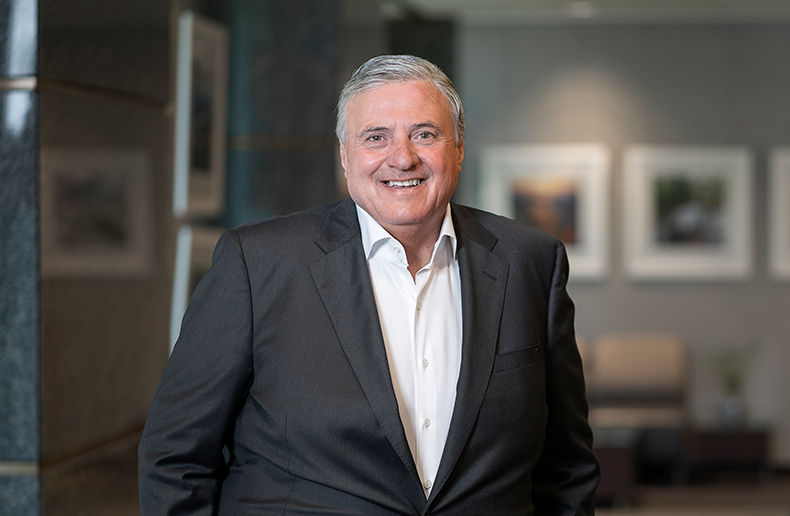What has the industry learned from the COVID-19 crisis and how will the pandemic shape its future? Financial Horizons Group CEO Nick Pszeniczny outlined the most plausible outcomes in an exclusive interview with the Insurance Portal. We present his analyses in a series of articles. This is the first.
What’s more, an article covering the in-depth strategic interview with the Financial Horizons Group CEO will be featured in our October 2020 edition of the Insurance Journal magazine.
COVID-19 is turbocharging the adoption of digital platforms for remote sales and advisor support, while reinforcing the value of advice and financial planning. This trend will last well beyond the coronavirus crisis, Financial Horizons Group CEO Nick Pszeniczny told the Insurance Portal in an exclusive interview.
Pszeniczny points out that COVID-19 has forced the industry to advance technologically at a much faster pace. “I think a major shift is going to take place that will have implications for the MGAs, for the advisors and for the industry as a whole,” he warns.
To weather this change, the industry will need to revisit old paradigms and focus on technologies that support advisors with their clients and on tools to support advisors who work remotely.
Pszeniczny says that Covid has expedited the need for increased technology and digital platforms. “With these digital platforms, customers expect that they are viewed holistically and that their entire insurance and wealth management portfolio be aggregated and reviewed collectively so that their entire financial portfolio is considered in tandem and not in isolation. Covid has created this customer expectation with the emergence of digital commerce. ”
Value of advice during a crisis
Another major change: the pandemic will reinforce the importance of advisors and of financial planning, Nick Pszeniczny says. When he entered the industry, the economic crisis of 1980 was in full swing, propelling interest rates to dizzying heights. He went on to witness other shocks: the burst of the tech bubble in 1999, the liquidity crisis of 2008, the H1N1 bird flu pandemic of 2009…the list goes on.
“In my 37 years in the industry, I’ve seen many market corrections. They are all different in certain ways but what remains common is that they all attack the balance of life, the balance of commerce and security. They show how fragile our economies, our lives and our future really are. In those times of need, everybody seeks some comfort and stability. We need to help provide them protection. As companies show high ratio debt levels, interest rates are low and the pandemic struck a lot of fears in Canada. Our industry brings stability in time of crisis,” he says.
COVID-19 is highlighting the value of advice like never before, he adds. “In challenging times, Canadians seek trusted advice. Advisors support the financial well-being of Canadians. The value of advice has never been more critical as it is now.” In particular, “the importance of the value of advice is really reinforcing the importance of financial planning.” He adds that the value of advice is critical not only at the point of sale but equally important throughout the lifecycle of customers. Reinforcing at all times the importance of adhering to their overall plans despite possible unforeseen obstacles.
Heightened need for protection
The entire industry must learn that serving clients is a very fragile responsibility because environmental and market conditions are all connected, Pszeniczny continues. “We have to be responsive and focused on serving the needs of advisors and their clients through this,” he says.
The pandemic has heightened the need for protection, he says. “COVID-19 has created a lot of awareness right now for the importance of life insurance and financial planning. Mortality is in the news every day and people are willing to buy. I’m really proud that advisors are using both digital and virtual platforms to talk about the need for various coverages.”
Distancing over the long term
Unlike other crises, that of 2020 didn’t come with any foresight, Pszeniczny says. “We need to be very patient and creative, to maintain professionalism and constant contact with our clients. We know it will pass but what remains uncertain is what the new normal will look like. COVID-19 has a transforming effect on our industry and is accelerating the introduction of new technologies and increasing the need for trusted advice. I think that’s what will be different between COVID-19 and the other crisis.”
COVID-19 will trigger change on a scale unparalleled in previous crises. “Advisors shifting to remote relationships using digital tools versus face-to-face relationships are feeling a lot of emotion right now,” Pszeniczny adds. He says advisors as resilient. “They will find ways to be productive because they care immensely about their clients’ wellbeing.”
The crisis is sparking a seismic shift, he says. “Advisors will have to understand that they can continue to operate using physical distancing, as things start to open up, because I don’t think that distancing will go away soon. Advisors will have to adjust to that, and advisors are pretty adaptive.
Focus on leads and analytics
He add that clients’ ability to buy digitally is growing exponentially. At the same time, he sees that most companies are preparing for digital distribution when things get back to normal…in a completely different environment.
“They will focus on digitally enabled salesforces and enhanced use of data analytics, on lead generation and support to customers’ platforms. Insurers can differentiate themselves in this evolving distribution landscape by moving quickly either by pilot projects or test and learn. Insurers will focus on three areas: customers; salesforces andenablers,” Pszeniczny says. He describes enablers as being focused on data and analytics to support customer needs and buying preferences.
Inspired by mutual funds
COVID-19 reinforces the need for insurers to innovate, Pszeniczny adds, especially in life insurance. “This means designing products adapted to clients’ changing needs and customizing products.”
“We’ve seen changes on the wealth management side of the business. But I think that life insurance has been lagging behind. On the wealth side, you see different load flexibility, several funds and solutions, different ways to purchase them. We haven’t seen that level of innovation at this particular point on the insurance side,” Pszeniczny says.
BY ALAIN THÉRIAULT, with contributions from DONNA GLASGOW and SERGE THERRIEN







